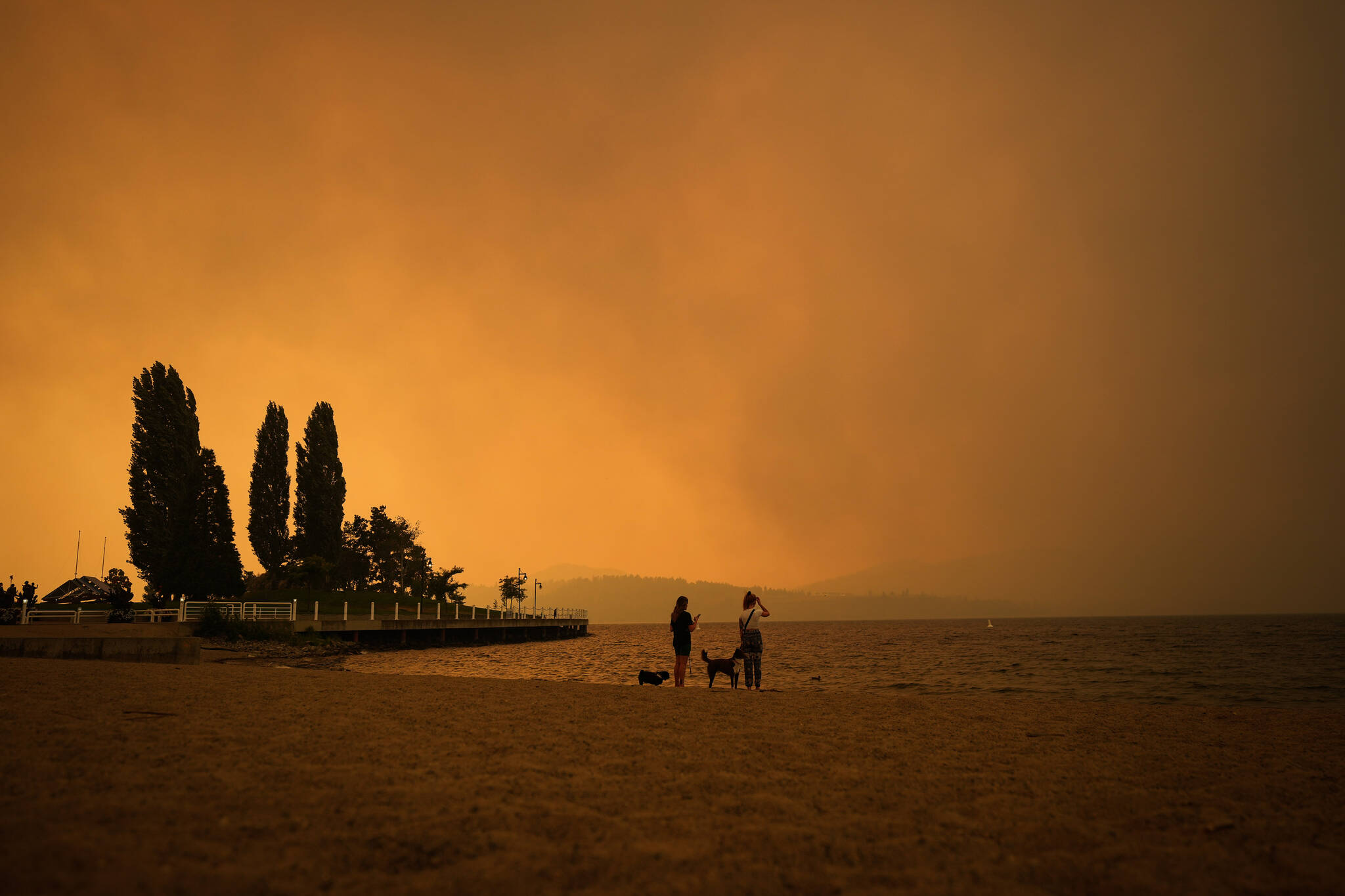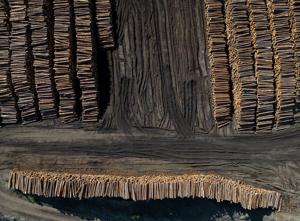Top Stories
Urgent Update: Canada Faces Record Wildfires Straining Health Systems

UPDATE: Canada is grappling with an unprecedented wildfire crisis as 3,582 fires have scorched 6.2 million hectares as of July 30, 2025—a staggering four times the average over the past decade. With wildfires now a yearly norm, the health impacts are dire and immediate.
As hospitals struggle with staff shortages and rising costs, these devastating fires are compounding existing pressures on health systems, particularly in rural areas where medical facilities are often under-equipped. The smoke from the ongoing McDougall Creek wildfire is severely affecting air quality, posing serious health risks to vulnerable populations, including seniors and children.
Bhavini Gohel, a clinical associate professor at the University of Calgary, emphasizes the urgent need for a coordinated response, stating:
“Wildfires are now a predictable part of Canada’s climate reality. Yet health systems remain unprepared.”
The escalating crisis highlights the necessity for robust planning and investment to safeguard health care during disasters.
During wildfire events, health-care facilities face unique challenges. Access to care is severely limited when hospitals are forced to evacuate or close due to hazardous conditions. The fallout includes increased emergency visits related to burns, vehicle accidents during evacuations, and respiratory issues from smoke exposure—disrupting care for patients with chronic conditions.
The ramifications extend beyond physical injuries. Survivors often endure long-term mental health issues, including anxiety and depression, necessitating immediate attention and resources for mental health support.
As wildfires continue to threaten the safety of communities, the consequences for health care are profound. Past wildfire events have incurred millions in costs due to the need for rapid patient evacuations and reorganization of care. With the wildfire season in full swing, health officials are urging immediate action to bolster resilience in health systems.
To address the crisis, experts recommend several critical steps: enhancing leadership training for health-care administrators, securing stable funding for emergency preparedness, and strengthening health information systems to maintain access to patient records during outages.
Moreover, technology must be leveraged to ensure continuity of care. Virtual health platforms can help connect patients with providers, even when traditional access routes are compromised. Communities must be educated on how to seek care during emergencies, including the distribution of preparedness kits and mental health resources.
Investing in these initiatives is not just a necessity; it is also anticipated to yield long-term savings by minimizing disruptions and improving patient outcomes. As Gohel notes,
“If we fail to prepare, wildfires will continue to exacerbate the cracks in our health system.”
The time to act is now. Strengthening health systems against the backdrop of climate-induced disasters is essential to ensuring that all Canadians have access to the care they need during crises. As the situation develops, the focus must remain on building a resilient, patient-centered health care framework that can withstand the growing threat of wildfires.
-

 World3 months ago
World3 months agoScientists Unearth Ancient Antarctic Ice to Unlock Climate Secrets
-

 Entertainment3 months ago
Entertainment3 months agoTrump and McCormick to Announce $70 Billion Energy Investments
-

 Science3 months ago
Science3 months agoFour Astronauts Return to Earth After International Space Station Mission
-

 Lifestyle3 months ago
Lifestyle3 months agoTransLink Launches Food Truck Program to Boost Revenue in Vancouver
-

 Technology2 months ago
Technology2 months agoApple Notes Enhances Functionality with Markdown Support in macOS 26
-

 Top Stories7 days ago
Top Stories7 days agoUrgent Update: Fatal Crash on Highway 99 Claims Life of Pitt Meadows Man
-

 Sports3 months ago
Sports3 months agoSearch Underway for Missing Hunter Amid Hokkaido Bear Emergency
-

 Politics2 months ago
Politics2 months agoUkrainian Tennis Star Elina Svitolina Faces Death Threats Online
-

 Technology3 months ago
Technology3 months agoFrosthaven Launches Early Access on July 31, 2025
-

 Politics3 months ago
Politics3 months agoCarney Engages First Nations Leaders at Development Law Summit
-

 Entertainment3 months ago
Entertainment3 months agoCalgary Theatre Troupe Revives Magic at Winnipeg Fringe Festival
-

 Politics1 week ago
Politics1 week agoShutdown Reflects Democratic Struggles Amid Economic Concerns



















